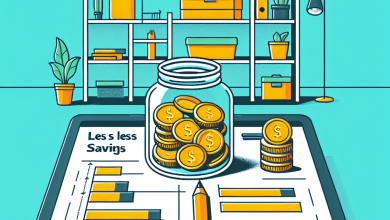
Budgeting for Bliss: Crafting a Lifestyle That Fits Your Finances
Budgeting for Bliss: Crafting a Lifestyle That Fits Your Finances
In today’s fast-paced world, where consumerism reigns supreme, maintaining financial stability while pursuing personal happiness can often feel like a balancing act. However, budgeting doesn’t have to be a restrictive or tedious endeavor; it can, in fact, be a transformative tool that paves the way for a blissful lifestyle. The key is to approach budgeting not just as numbers and spreadsheets, but as a means to align your finances with your values and aspirations.
Understanding Your Why
Before you delve into the mechanics of budgeting, pause to reflect on your "why." What does bliss mean to you? Is it traveling the world, owning a cozy home, enjoying gourmet meals, or simply having peace of mind knowing you’re financially secure? Understanding your goals will help you shape a budget that reflects your unique vision of happiness.
Setting Financial Goals
Defining both short-term and long-term financial goals is crucial. Are you saving for a dream vacation, your first home, or retirement? Goal-setting creates a motivational framework that turns abstract notions of pleasure into tangible milestones. Use the SMART criteria—Specific, Measurable, Achievable, Relevant, and Time-bound—to articulate your goals clearly.
Crafting Your Budget
Once you have a clear understanding of your goals, it’s time to develop a budget. Here are the essential steps to craft a personalized budget that fosters financial bliss:
1. Assess Your Income and Expenses
Begin with a comprehensive overview of your income sources and monthly expenses. Use tools like spreadsheets or budgeting apps to track where your money goes. Categorize your spending into fixed (rent, utilities) and variable (entertainment, dining out) expenses.
2. Prioritize Your Spending
Evaluate your expenses in relation to your goals. This is where the distinction between wants and needs becomes vital. Identify areas where you can cut back or reallocate funds. For instance, if travel fuels your happiness, consider reducing spending in categories that provide less personal value.
3. Implement the 50/30/20 Rule
A popular budgeting method is the 50/30/20 rule which suggests allocating:
- 50% of your income towards needs (housing, utilities, groceries)
- 30% towards wants (dining out, entertainment, travel)
- 20% towards savings and debt repayment
This rule serves as a flexible guideline, allowing you to adjust allocations based on your personal financial situation and goals.
Embracing Flexibility and Mindfulness
Life is unpredictable, and financial circumstances can change. Embrace flexibility in your budgeting process. Make it a habit to revisit your budget regularly, adjusting it as needed to reflect changes in income, expenses, or priorities. This mindfulness fosters a healthier relationship with your finances.
Celebrate Small Wins
In your budgeting journey, acknowledge and celebrate achievements, both big and small. Reaching a savings milestone, paying off a debt, or successfully cutting back on discretionary spending deserves recognition. Celebrating these victories reinforces positive financial habits and fuels your motivation.
Invest in Experiences, Not Things
Research consistently shows that experiences, such as travel or courses, often result in greater long-term happiness than material purchases. Reallocate your budget towards experiences that bring joy rather than accumulating more possessions. This shift in focus can lead to increased satisfaction and feel more aligned with your personal values.
Build an Emergency Fund
A solid emergency fund is a cornerstone of financial security. Aim to save at least three to six months’ worth of living expenses. Knowing you have a financial cushion can alleviate stress, allowing you to face unexpected events with confidence and grace.
Conclusion: A Blissful Balance
Budgeting for bliss is about more than strict limits—it’s about creating a lifestyle that nurtures your sense of joy and fulfillment. By aligning your financial choices with your personal values and aspirations, setting clear goals, and embracing flexibility, you can cultivate a financial landscape that supports your vision of happiness. Remember, the journey of budgeting is ongoing and uniquely yours; allow it to evolve as you grow and change.
In the end, mastering your finances can lead not just to financial security, but also to a deeper sense of peace and contentment. Budgeting isn’t just about managing your money—it’s about crafting a life that fits your unique aspirations, allowing you to pursue your personal definition of bliss.
 GOOGL
GOOGL  META
META 


